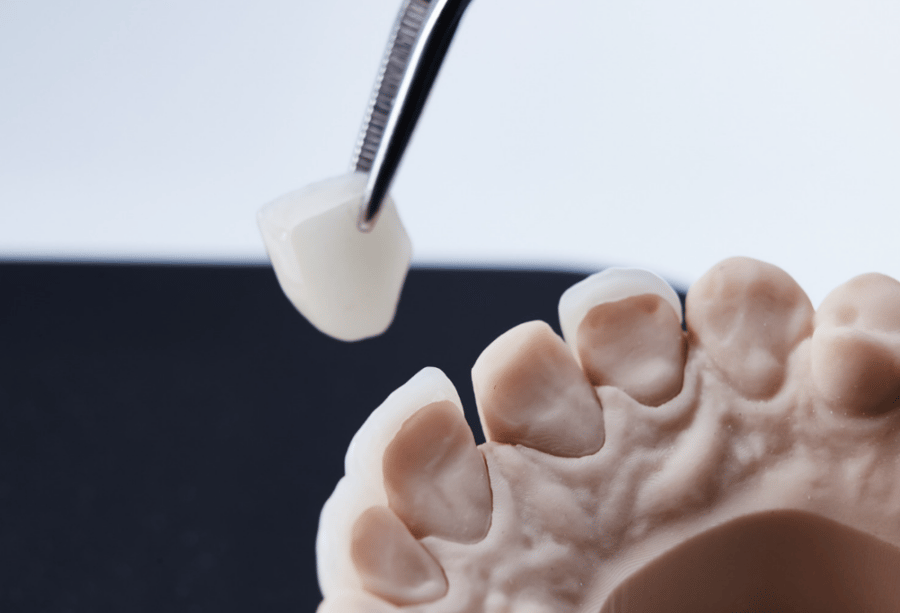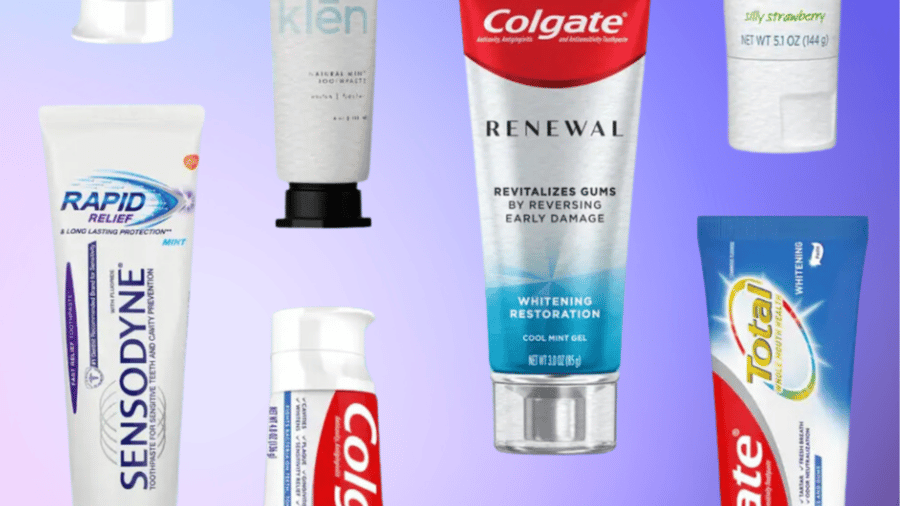Will My Teeth Be Sensitive With Veneers?
February 9th, 2024 | 3 min read

One of the common concerns for individuals considering dental veneers is whether the procedure will lead to tooth sensitivity.
At NYC Smile Design, we often encounter patients with this concern, particularly those who already have sensitive teeth. It’s a valid question that warrants a detailed explanation.
This blog aims to provide insights into the likelihood of experiencing tooth sensitivity after getting veneers, drawing from our extensive experience in cosmetic dentistry. We’ll offer reassurance and practical information to help you manage and minimize any potential discomfort associated with veneers.
What Are Dental Veneers?
Dental veneers have become a popular solution for those looking to enhance their smile, but the prospect of tooth sensitivity post-procedure can be a point of concern for many. To address these fears, it’s essential to first understand what dental veneers are and how they work.
Veneers are essentially thin, custom-made shells designed to transform the appearance of your teeth. They are crafted from materials such as porcelain or composite resin, which are known for their durability and resemblance to natural tooth enamel. These shells are carefully shaped and colored to match your natural teeth, ensuring a seamless integration into your smile.

The Veneer Placement Process
Understanding the veneer placement process can help demystify the potential for sensitivity. The procedure typically involves careful preparation of your teeth, precise impressions, and customization, followed by the bonding process.
Preparation of Teeth
The process begins with the removal of a small amount of tooth enamel. This step is essential for creating space for the veneer and is done with the utmost care to preserve as much natural tooth structure as possible. The amount removed is usually minimal, just enough to ensure that the veneer fits seamlessly without appearing unnatural. The key here is to maintain the strength and structure of your natural tooth while preparing it for the veneer.
Impressions and Customization
After preparing the teeth, your dentist will take detailed impressions or molds of your teeth. These impressions are critical as they are used to create veneers that are perfectly fitted to the dimensions of your teeth. This customization ensures that each veneer not only matches the color and shape of your natural teeth but also fits comfortably, which is vital for minimizing any post-procedure sensitivity.
Bonding
The final step involves the fitting and permanent bonding of the veneers to your teeth. Before the bonding, the dentist temporarily places the veneers to check their fit and appearance, making any necessary adjustments. The veneers are then securely bonded using a special adhesive, often hardened with a light beam to ensure that they are firmly attached. This precise bonding process is crucial for the veneers to function like a natural part of your tooth, reducing the risk of sensitivity due to misalignment or movement.

Potential for Sensitivity
When it comes to getting veneers, a common concern is the potential for sensitivity during and after the procedure. Here’s an expanded look at what you might expect in terms of sensitivity:
During and After the Procedure
It’s not uncommon for some individuals to experience temporary sensitivity to hot or cold temperatures immediately following the veneer placement. This sensitivity typically occurs as your teeth adjust to the new veneers. It’s usually short-lived, often subsiding within a few days to a couple of weeks. The extent and duration of this sensitivity can vary from person to person, but it’s generally a temporary phase that eases as your mouth becomes accustomed to the veneers.
Long-Term Sensitivity
When it comes to long-term sensitivity, it’s reassuring to know that veneers usually do not cause persistent or ongoing sensitivity. Most individuals find that any initial sensitivity fades away, leaving them with a comfortable and natural-feeling smile. However, it’s important to note that individuals who have a history of sensitive teeth might be more susceptible to experiencing sensitivity after getting veneers. In these cases, special care and certain precautions may be recommended by your dentist to manage and minimize sensitivity.
Minimizing Sensitivity
Minimizing sensitivity after getting veneers involves a combination of proper dental care, regular dental check-ups, and being mindful of certain triggers. Here’s a closer look at these steps:
Proper Dental Care
Maintaining good oral hygiene is crucial in preventing sensitivity with veneers. This involves brushing your teeth regularly with a soft-bristled toothbrush, which is gentle on both your natural teeth and veneers. Using toothpaste specifically designed for sensitive teeth can also be beneficial. These kinds of toothpaste often contain ingredients that help to reduce tooth sensitivity, making your daily oral care routine more comfortable.

Regular Check-Ups
Keeping up with regular dental check-ups is another important step in minimizing sensitivity. During these visits, your dentist can check the condition of your veneers and ensure they are properly maintained. Regular check-ups also provide an opportunity to address any minor issues before they become more significant problems. Your dentist can offer professional advice and treatment options if you’re experiencing ongoing sensitivity.
Avoiding Triggers
Being mindful of certain triggers that can exacerbate sensitivity is also helpful. This includes avoiding overly hot or cold foods and beverages, which can sometimes trigger discomfort in sensitive teeth. By being cautious about the temperature of what you eat and drink, you can help reduce instances of sensitivity and maintain comfort after your veneer procedure.
Conclusion: Balancing Beauty and Comfort
In most cases, veneers can enhance your smile without causing long-term sensitivity. Understanding the procedure and following proper dental care post-placement can significantly reduce any discomfort. If you’re considering veneers and have concerns about sensitivity, consult with a dental professional for personalized advice. At NYC Smile Design, we’re committed to ensuring our patients not only achieve beautiful smiles but also maintain comfort and oral health throughout the process. If you’re thinking about veneers and want to know more, our team is here to guide you every step of the way. Visit our website to schedule your consultation today!
Topics:

